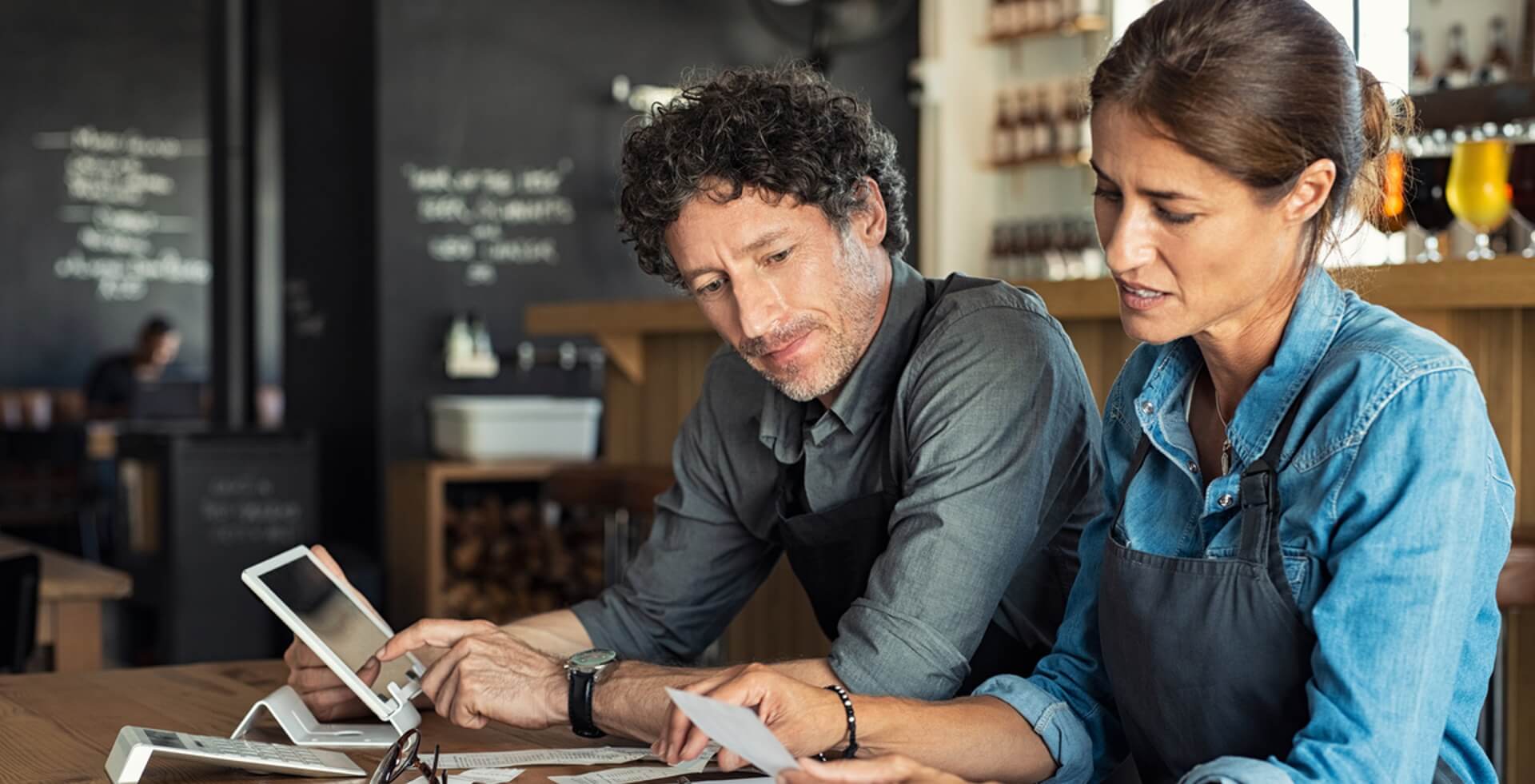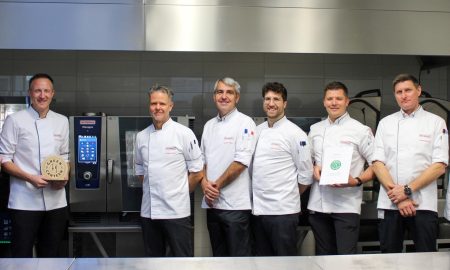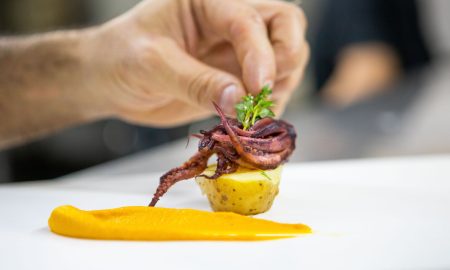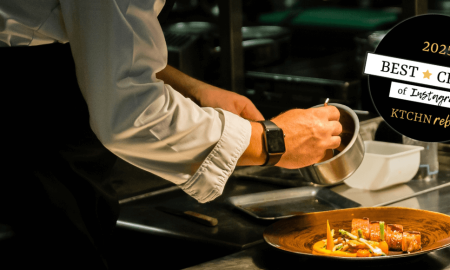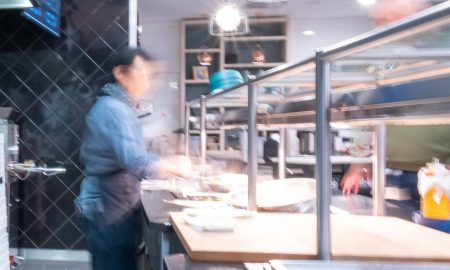The food service industry is caught in a vicious downward spiral, and even the hotel sector is feeling the effects. This might seem paradoxical at first glance: overnight stays are on the rise, and tourism in general hasn’t just bounced back from the pandemic – it’s setting records, and not only in Europe. Yet if you’ve been following hospitality-industry news over the past few months, you’ll have noticed a steady stream of hotel restaurant closure announcements. The reasons for it are always easy to find: rising prices, reduced sales, the skilled worker shortage. It’s not worth running hotel restaurants under these conditions, people keep saying, because there’s no money to be made.
Which raises the question: Is the hotel F&B industry (also) in a genuine crisis, or is it (once again) simply facing challenges that “are promptly made out to be a crisis,” as Pierre Nierhaus puts it? In fact, the renowned trend researcher sees this as a turning point for the hospitality sector – a moment of change that it needs to make the most of. Something not everyone will manage. Or can manage.

Image: Theodor Barth
The historical narrative
André Klode-Purat, Key Account Manager at RATIONAL Germany, also shares this view. The trained chef with years of experience in high-end professional kitchens describes claims about excessive expenses, staff shortages and costs, and exorbitant energy prices as “narratives” based on past circumstances – narratives that mask the real problem. At RATIONAL, André Klode-Purat is responsible for hotels and resorts in the DACH region; he regularly hosts GM cocktails, high-quality networking events for industry decision-makers.
The expert says that hoteliers are currently being asked to question various anachronistic “beliefs” regarding food service, and to view hotel restaurants as a resource that they need to make the most of. “For example, it’s unwise to only use the hotel kitchen for breakfast and then have it sitting idle in the evening because the restaurant is closed. This will require new concepts and people who have the courage to pursue a vision. You’ve got to look at everything: what are our competitors doing, who are we cooking for, who are we cooking with, what are we cooking, how are we cooking it?”
But isn’t everything in the hospitality industry pointing towards staff reduction? Aren’t contactless (and therefore kitchenless) hotels THE trend? To quote Josef Vollmayr, founder of the largely digitized and minimally staffed limehome hotel chain, don’t guests today want to “go to the bakery next door, which has better stuff than the €30 hotel breakfast?” It depends on the target group, says André Klode-Purat. First and foremost, those responsible should know where things are headed. What’s the hotel’s target group? Which clientele will it be targeting in the future?

Image: Rational
Technology creates efficiency
“A lot of dusty old hotel brands are stuck in their 90s mindset,” says André Klode-Purat. “You can see it in their interiors and in their food and beverage options. “But if you want to attract a younger audience, you have to offer something new. You don’t have to reinvent the wheel. It’s a lot more important to establish the right mindset that will allow you to be open to the necessary changes.” Hotels are generally trending towards comfort, with digitality and technology having a major impact.
On the one hand, hotel restaurants can deliver great results even with a relatively small kitchen crew by using a combination of fresh ingredients and high-quality convenience products. On the other hand, it’s important to take the opportunity to take advantage of technology that will let us make targeted use of resources. And RATIONAL has been providing that technology for a long time. “As a combi-steamer, the iCombi Pro offers enormous advantages, and not only in the kitchen. It gives users a lot more options, such as a bar food menu. Thanks to the simple operating concept, even a hotel bartender or a front office employee can make a perfect pizza at any time. That’s what it’s all about: Making processes simpler. And more efficient. Our digital kitchen management system ConnectedCooking helps with that, too.”
Having a modern kitchen with efficient appliances is crucial to guests’ experiences, but it doesn’t end there. Adapting to new, modern circumstances also means recognizing and accepting employees’ changing needs. André Klode-Purat notes that workplace appeal is the key here. “It’s not just about salary, working hours, and work-life balance,” he says. “For me as a chef, workplace appeal is about technology more than anything else. If you work in a perfectly equipped kitchen, you’ll really enjoy working there. That’s one of the keys to finding – and keeping – skilled workers. Because that’s what it’s all about: not losing good employees.”

Image: Rational
Hotel restaurants: Open to new ideas
In times of social media, food influencers, and restaurant apps, it’s crucial to think outside the box, says André Klode-Purat. Today’s hotel guests use their phones to search the area for whatever type of food they’re craving. “Creative hotels will find a way to show up in that search,” he says. “To prepare different styles of food and make them available to their hotel guests quickly. And not just to them, but to everyone in the area looking for a specific type of food. Sure, that means additional logistics or working with existing delivery services, but that will help boost the visibility of the restaurant and its menu.”
André Klode-Purat’s parting thoughts: “In the future, smart people will be cooking in hotel restaurants, but they won’t necessarily have to be chefs. Basically, it’s about finding someone within your hotel operations who will take responsibility for rethinking the restaurant kitchen as a resource. Because deciding to close that resource merely creates another construction site. And I don’t think that’s smart.”


